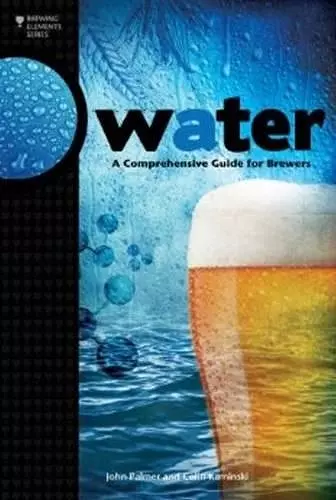Water
A Comprehensive Guide for Brewers
John J Palmer author Colin Kaminski author
Format:Paperback
Publisher:Brewers Publications
Published:7th Oct '13
Currently unavailable, our supplier has not provided us a restock date

This non-fiction paperback, "Water" from John J Palmer & Colin Kaminski, was published 7th October 2013 by Brewers Publications.
ISBN: 9780937381991
Dimensions: 223mm x 152mm x 20mm
Weight: 485g
300 pages